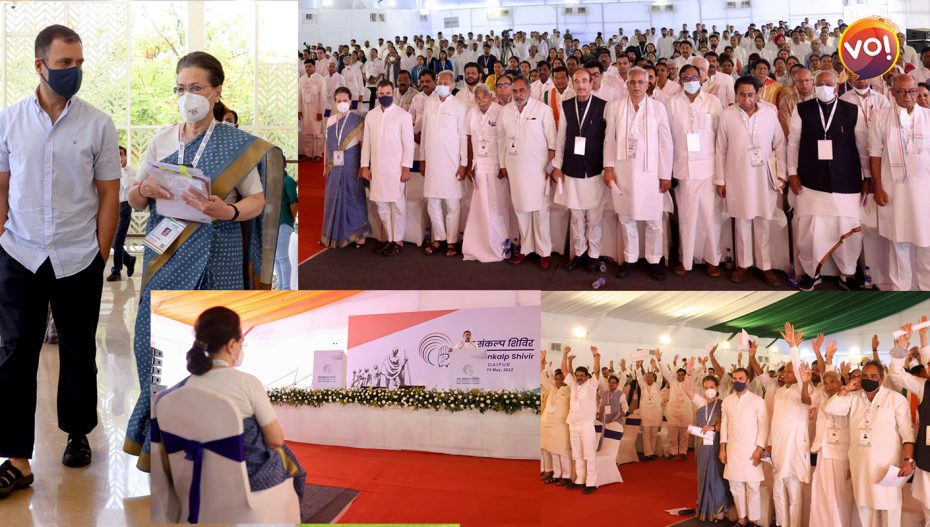In a candid admission of sorts, Congress leader Rahul Gandhi has conceded that the party had lost its connect with the common masses, even as the party’s three-day national brainstorming session concluded on Sunday with a decision to take out a “Bharat Jodo yatra” from Kashmir to Kanyakumari to highlight the BJP Government’s “divisive policies”.
Speaking at a Chintan Shivir of the Congress Working Committee in Udaipur, Rahul Gandhi said, “We have to revive our connection with people and need to accept that it was broken down. We will strengthen it, this will not happen with any short-cut, it requires hard work. The Congress will take out a nationwide yatra in October to strengthen connections with people.”
Simultaneously, he said Congress was the only party that allowed such democratic conversations within the party forum, while the BJP and the RSS would not allow any such candid soul-searching inside the party.
He rued that conversations were not being allowed in India today. “We see conversations being muzzled and we do not understand its consequences.”
“Pegasus is not a software, it is a way to silence the political class of the country, a way to strangle political conversation,” Rahul Gandhi asserted.
He asked, “Which other political party in this country would allow this type of conversation? Certainly, the BJP, and RSS would never allow such a thing. India is a union of states, people of India come together to form the union.”
Rahul Gandhi alleged that there is a fear that demographic dividend will turn into a demographic disaster and the BJP government is responsible for it. He said Congress, on the other hand, has always provided a platform for people to deliberate without fear and worry.
On Sunday, the Congress leadership took up the final round of discussions to bring about organisational reforms and articulate the party’s position on key issues and challenges confronting it and the country at a meeting of the CWC.
After incisive discussions for two days on organisational, political, economic, agricultural, social justice and youth-related issues, the dedicated panels formed for the purpose submitted their reports to the Congress president which will be given to the CWC for their final approval.
At the Chintan Shivir, the leaders also expressed their concern over the possible tampering of the electronic voting machine (EVM) though it had romped home in at least two general elections in 2004 and 2009 with votes cast in machines.
Former Maharashtra chief minister Prithviraj Chavan suggested that the Chintan Shivir should pass a resolution saying India will return to paper ballots if the Congress returns to power—a proposition that would require winning votes through EVMs!
The political committee of the Shivir, led by Rajya Sabha leader of the opposition Mallikarjun Kharge, saw several enthusiastic speakers questioning the credibility of EVMs.


















